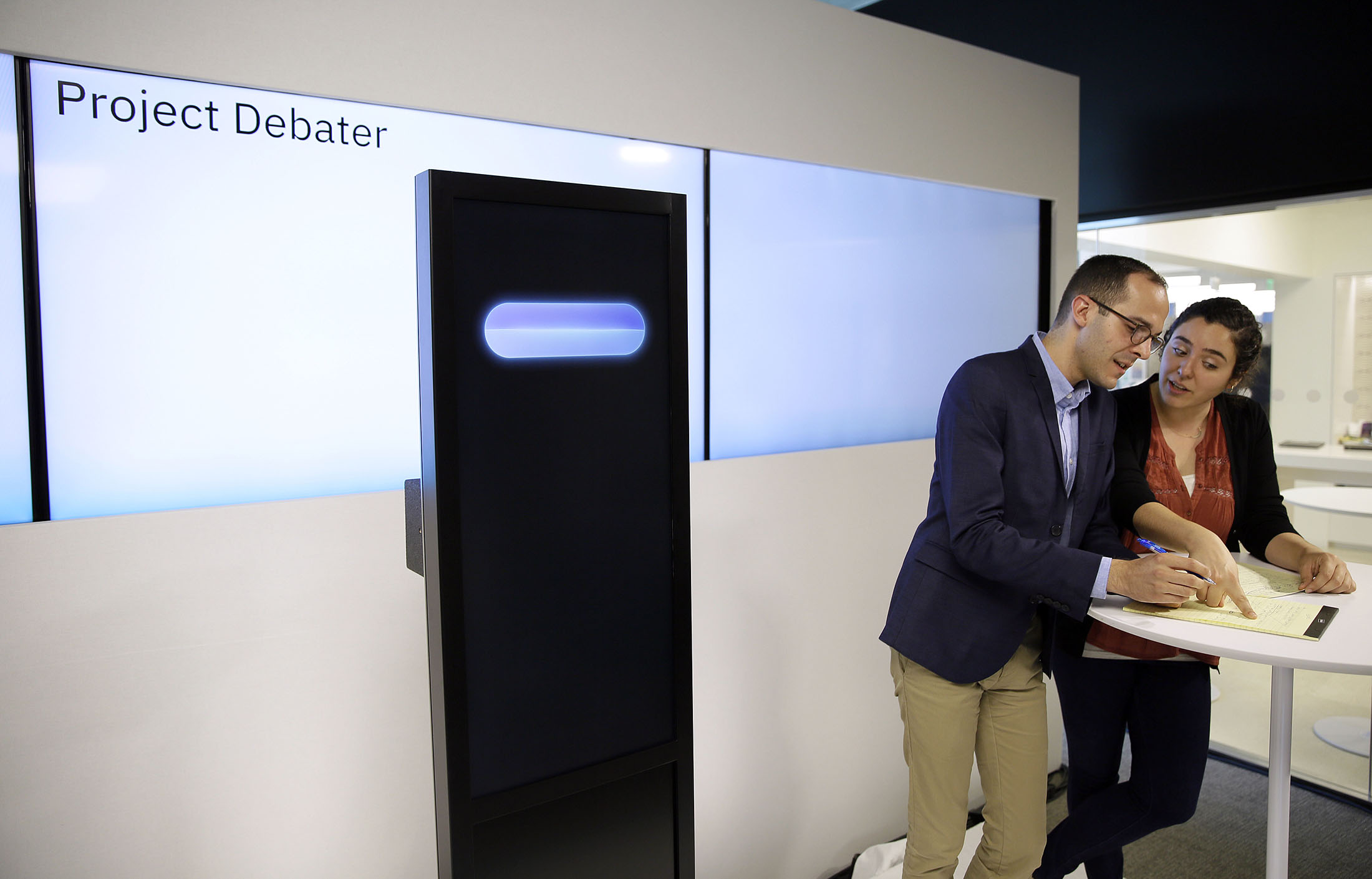Forward-looking: Practical use cases are aplenty. Legislators could use the AI to debate a critical issue, lawyers could lean on it to prepare a brief and teachers could use it to help students develop critical thinking skills.

IBM at a media gathering on Monday held the first public demonstration of Project Debater, an artificial intelligence designed to generate persuasive arguments on any given topic – regardless of if it has been trained on the subject or not.
Project Debater went head-to-head against two of the world’s top debaters: Israeli debate champion Noa Ovadia and Dan Zafrir. Each participant was given four minutes to make an opening statement, followed by a four-minute rebuttal and a two-minute closing argument.
Neither the computer nor the human debater was made aware of the topics in advance.
According to USA Today and several other reports, the AI held its own against the human competition. The humans won both matches although the AI won big in the category of “knowledge enrichment.” At least nine audience members changed their minds on the second topic at hand after hearing the AI’s point of view, the publication notes.
IBM Research Director Arvind Krishna said the AI has made great strides in the lab over the past couple of years. Two years ago, it was only able to make one or two solid statements alongside five to 10 useless points but by the end of last year, Krishna added, it began to hold its own.
One category the human competitors still hold an advantage in is delivery.
“Just like in real debates, humor has to also play a role, not just a well-crafted logical argument,” Krishna says. The AI “will never do so well as when the human debater can bring in a personal anecdote or personal experience. It doesn’t know how to react to that today.”
Image courtesy of Eric Risberg, AP Photo
https://www.techspot.com/news/75160-ibm-latest-ai-can-hold-own-when-debating.html